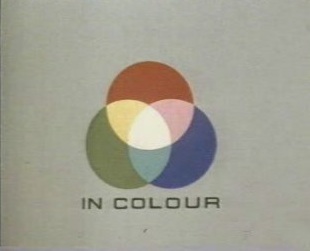Breakfast on BBC1 is currently displaying one of my pet hates: a reporter interviewing people in settings, or involved in activities, inappropriate for the interview. So, for instance, the piece currently airing is about a teenage girl who lost a lot of weight by exercising. She is answering questions while using a cross-trainer machine at a gym. She is dressed nicely for an appearance on telly, not in sports gear, and the exertion of the exercise makes the whole thing look awkward in the extreme.
What is this idiocy? Are we as viewers not trusted to understand what exercise in a gym actually entails? Or is the fear really that the package would be deathly dull without the interviewee performing in this way? And, if so, what does that say about the item in the first place?
This practice of embedding the reporter in the environment or activity they are reporting is often so ludicrous as to distract all attention from the story they are telling. The prize example of this, performed time and again, is when the feature is on education, and the reporter delivers their piece to camera while standing in the middle of a quiet classroom of children ostensibly working away. It's a fatuous practice, and one that cheapens us all.
Thursday 19 April 2007
Wednesday 11 April 2007
Life On Mars: knowledge comes with death's release

So, Sam Tyler makes a different choice to Dorothy, deciding there are places better than home. Last night's Life On Mars saw the lead character gloriously choosing to leap to his death, for a fleeting moment of reconciliation with his preferred fantasy of 70s pastiche, rather than carry on in a bleached-out, enervated 2007.
There is some grist here for the mill of those blockheads who've praised this series for being wonderfully 'politically-incorrect' (Sian Williams on Breakfast this morning being merely the latest). Being generous, I imagine they mean that Gene Hunt doesn't seem like the product of endless focus groups or demographic profiling. And yes, in a sense, that is refreshing. Hunt is preposterous, and in this context good fun. But I really wish these people would think before opening their mouths, as the implication is that life would somehow be better if we could go round calling people pakis, wogs, poofs, bitches et al - you know, like everyone thinks.
Anyway, I think it's less overtly political than Sam having woken to the profound rightness of the reactionary, despite the diametrically dull police procedural meeting he attends directly before his jump; Sam's return to his fantasy is an abnegation of adult responsibility (which, really, is also the motor driving the 'string-em-up' brigade). He chooses to return because it's fun dressing up in funny clothes and skidding along in funny cars. As the car screeches into the distance, the children dancing in its wake are an emblem for the nostalgia of that decision - not of specific tokens, like space hoppers and Space Dust, but an idealized 'land of lost content'. Dennis Potter's Blue Remembered Hills was a riposte to that kind of infantile hankering after a mythical golden age, but I can't find it in my heart to begrudge Life On Mars for this ending. If nothing else, a modern lead character choosing suicide as a positive resolution is also well off the page of focus group reports, and it contains a kind of vitality purely for that. We've had fun over two series and we haven't mistaken Life On Mars for real life - that of now or thirty years previous. Neither has Sam, but if you're going to hanker after a fantasy world, have the courage to really embrace it.
ADDENDUM: See also here and here for some excellent other views.
Thursday 5 April 2007
Pudding

The first episode of new series of Sweet Baby James on BBC2 was pretty stodgy. I imagine the horrendous title and the gallery of photographs documenting James Martin's journey from sweet little boy to, well, rather less sweet man are designed to appeal to the succession of broody women who felt something stir within themselves during his appearances on Strictly Come Dancing. Once they were out of the way we were treated to a pretty ordinary cookery show, made watchable mainly due to the fascinating relationship between Martin and his boy acolyte, the wonderfully named, Will Torrent. Maybe this is how chefs and trainee chefs are in the kitchen, but on telly, more used to the pally-pally dynamic (cf. the uneven Neneh and Andi Dish It Up, immediately preceding), Martin's commands ("Get me a spatula!") and continual sniping at Torrent ("Got to keep your eye on him") just made him seem deeply unpleasant. This is on top of the many shots of Martin in his mid-life sports car, and barrow-boy hand jewellery, which were already doing the job of alienating this viewer perfectly well. Still, give it 12 months and Torrent will have his own BBC3 series - though it'll either be given an equally twee title, like 'Sugar Sugar', or a (sigh) 'controversial' BBC3 title, like 'Fuck Off, I'm A Chef, you Fuckwits'. Still, at least the shots of Castle Howard were free of the Brideshead Revisted theme, and that's something to be thankful for.
Subscribe to:
Posts (Atom)


